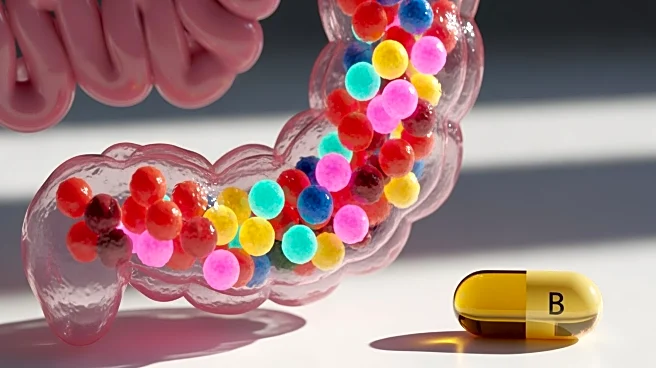What's Happening?
Recent research has identified a connection between gut bacteria and Parkinson's disease, suggesting that supplementation with B vitamins could alleviate symptoms and slow disease progression. The study,
led by Hiroshi Nishiwaki from Nagoya University, found that changes in gut microbiomes are associated with decreased levels of riboflavin and biotin in Parkinson's patients. These deficiencies are linked to reduced short-chain fatty acids and polyamines, which are crucial for maintaining a healthy intestinal mucus layer. The weakened protective layer may expose the intestinal nervous system to toxins, contributing to the disease's progression. The findings highlight the potential of targeting gut health to manage Parkinson's symptoms.
Why It's Important?
This research underscores the significant role of gut health in neurological conditions like Parkinson's disease, which affects millions globally. By identifying specific gut bacteria and vitamin deficiencies linked to the disease, the study opens new avenues for treatment that focus on gut microbiome management. This could lead to more personalized and effective therapies, improving quality of life for patients. The findings also emphasize the importance of environmental factors, such as exposure to toxins, in disease progression, potentially influencing public health policies aimed at reducing such exposures.
What's Next?
Future research may focus on developing targeted therapies that enhance gut microbiome health, potentially involving personalized supplementation of B vitamins. Clinical trials could be conducted to test the efficacy of these treatments in slowing Parkinson's progression. Additionally, public health initiatives might aim to reduce environmental toxins that contribute to gut health deterioration. Researchers may also explore the broader implications of gut microbiome management in other neurodegenerative diseases, potentially leading to breakthroughs in treatment strategies.











